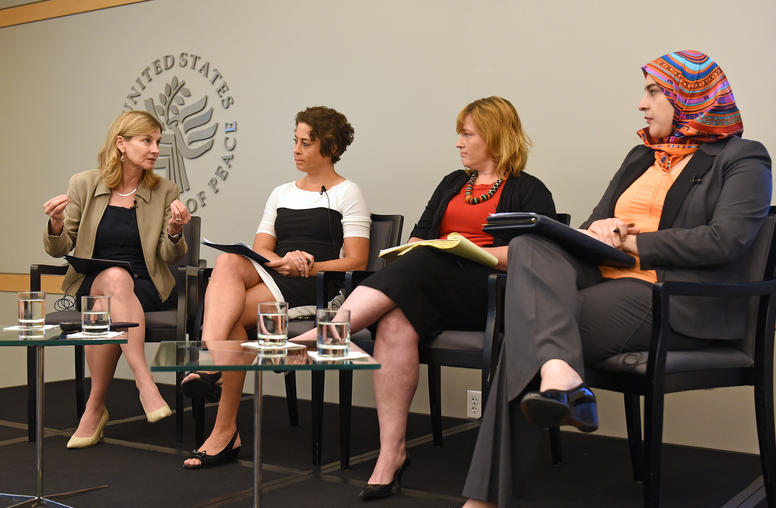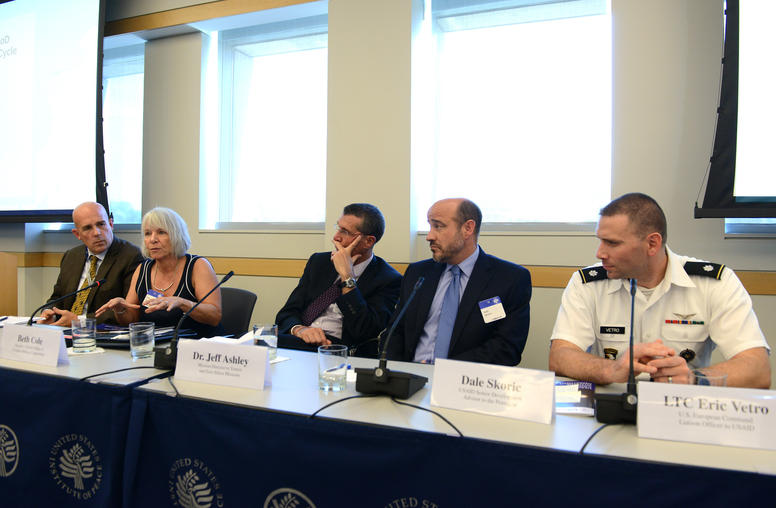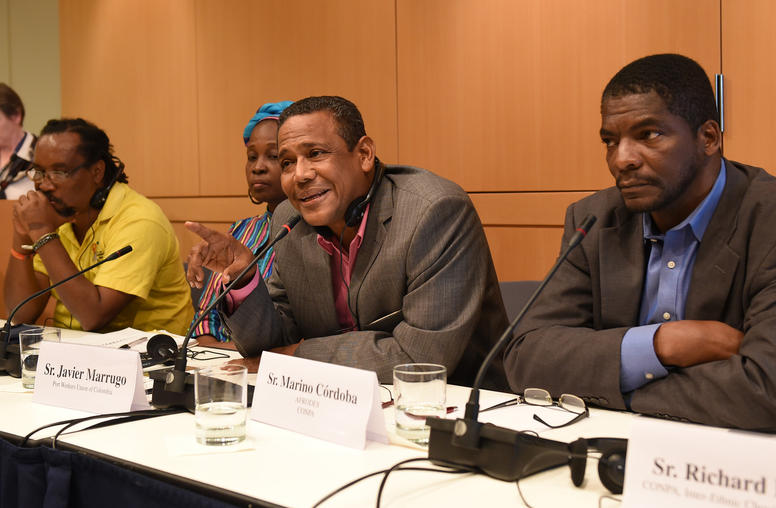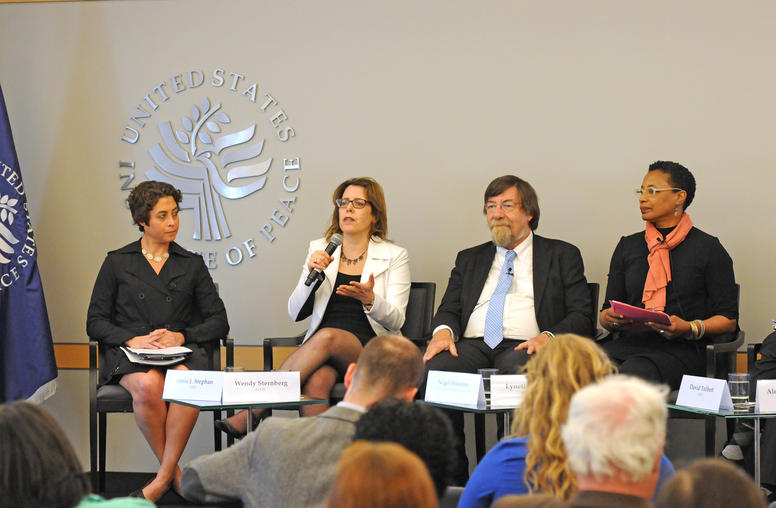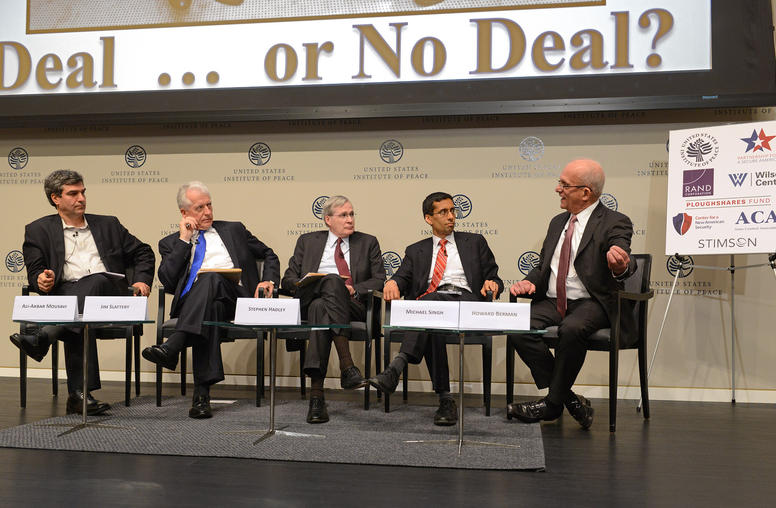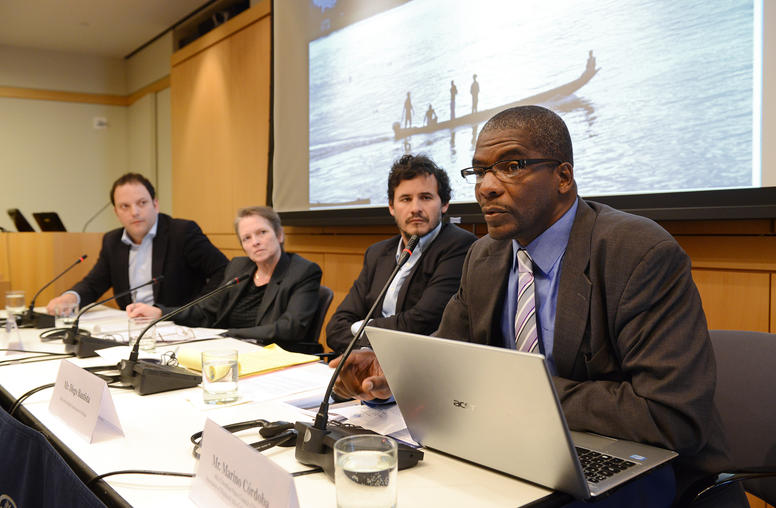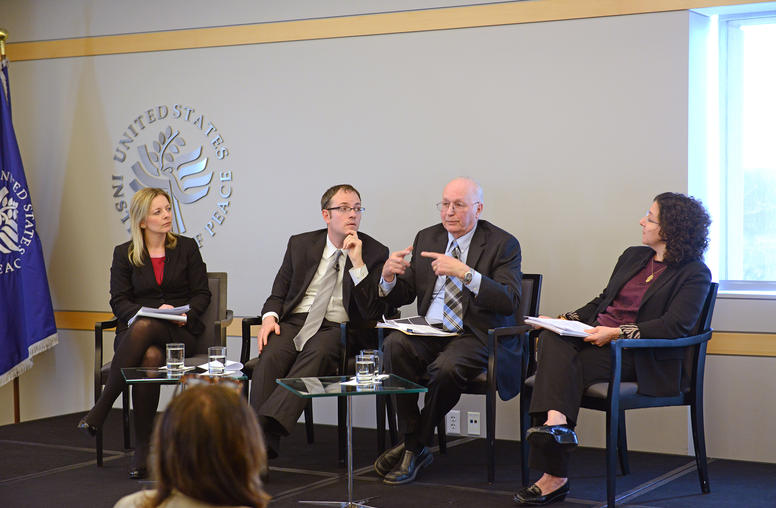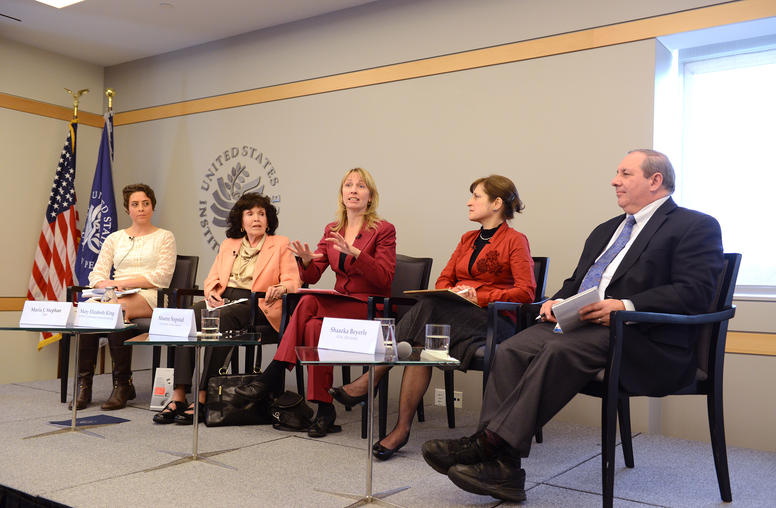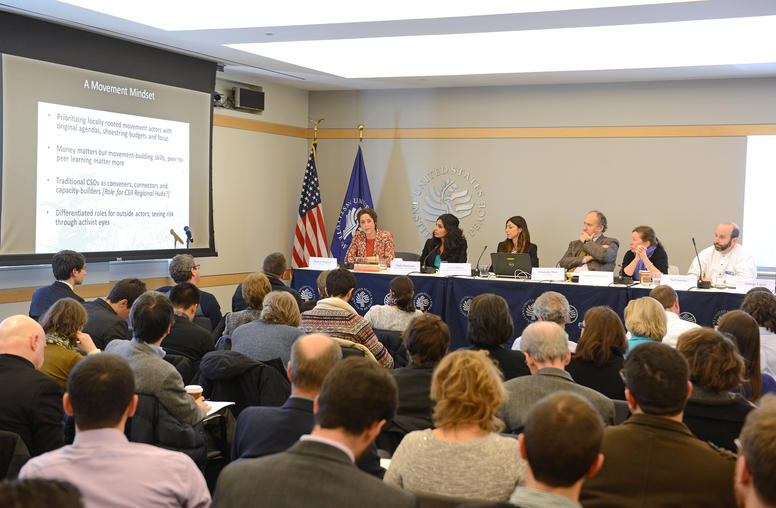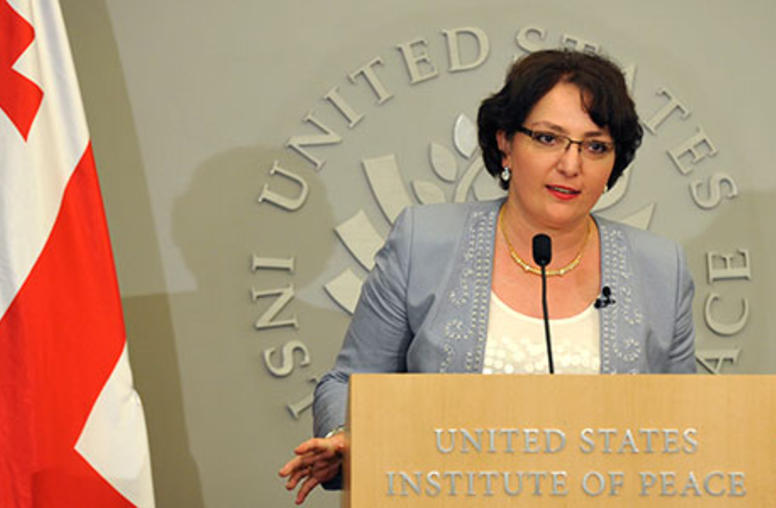
Seeking Security: Georgia Between Russia and ISIS
Georgian Defense Minister Tinatin Khidasheli, in Washington to meet with top U.S. officials, made her remarks at USIP August 19. She discussed how her country is navigating regional security threats that have deepened in the 18 months since Russia attacked Ukraine.
